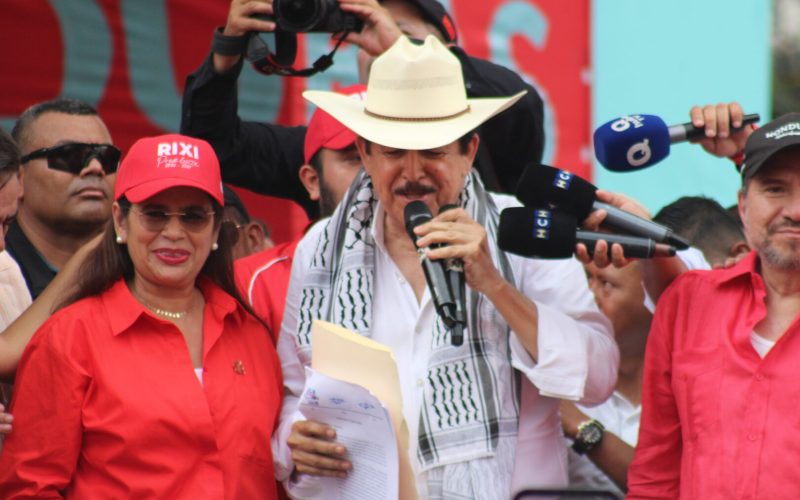With one month to go before the general elections, the ruling party LIBRE has begun a massive distribution of vouchers targeting vulnerable sectors of the country, generating mixed reactions among the public and political actors. The measure, implemented in the midst of the election campaign, has been questioned by opposition leaders and observers in terms of electoral ethics and clientelism.
Targeted distribution and political context
Over the past four years, LIBRE had not implemented direct assistance programs of this type. However, in recent weeks, distributions have been reported in urban neighborhoods with high concentrations of poverty, rural villages, and areas with high rates of marginalization. Citizen testimonies and social media posts show long lines of beneficiaries receiving the vouchers, many of whom are unaware of the origin of the funds.
A resident of El Progreso remarked: “For four years, we received nothing, and now they appear with vouchers precisely when they aim to retain power.” This comment highlights a common sentiment among certain segments of the populace concerning the timing of this assistance’s rollout.
Responses and inquiries
The measure has been perceived by adversaries as a “blatant tactic to sway the ballots of the most vulnerable,” as stated by a political figure who was interviewed. Experts in transparency and governance matters highlight that such actions could undermine the integrity of the electoral procedure by incorporating aspects of favoritism and influence over the voter’s choice.
The debate centers on whether these handouts, concentrated in the final stretch of the campaign, constitute a form of direct electoral influence, contrasting with the absence of similar programs during LIBRE’s entire administration. Critics warn that this practice could erode the perception of institutionality and fairness in political competition.
Implications for democracy and citizen participation
The distribution of vouchers by LIBRE raises questions about the relationship between social policies and electoral strategies in Honduras. Governance experts emphasize that these actions, although targeted at vulnerable populations, can generate tensions in citizen participation by conditioning expectations of assistance to the electoral context.
Furthermore, the measure comes at a time of political polarization, where public perceptions of fairness and transparency in the management of state resources are becoming a relevant factor in the legitimacy of the electoral process.
In this context, attention is focused on how the state’s electoral and financial control institutions will respond to these practices, and to what extent political parties will adjust their strategies in the face of public pressure and international scrutiny.




